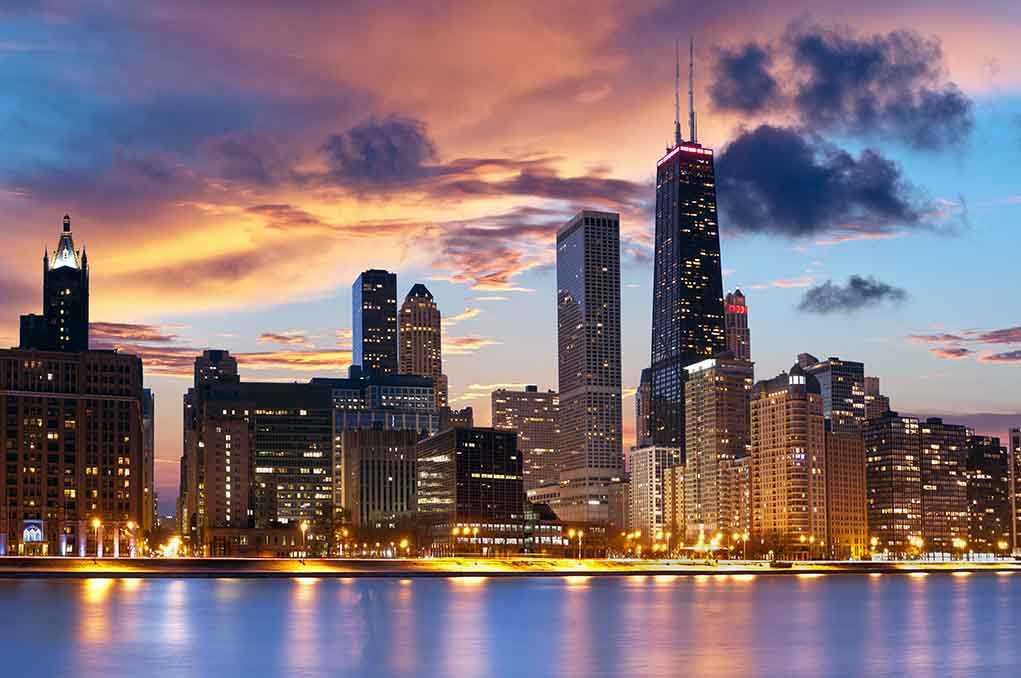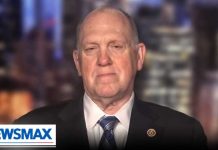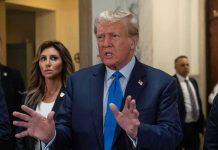
Federal deployment of the National Guard in Chicago exposes the failure of leftist leadership and raises urgent questions about the federal government’s role in restoring law and order where local authorities have fallen short.
Story Snapshot
- Kristi Noem, now Secretary of Homeland Security, publicly rebuked Chicago’s mayor for allowing rampant violence, branding the city a “war zone.”
- President Trump authorized the deployment of 300 Illinois National Guard members to Chicago after a shooting involving federal agents.
- The move highlights ongoing tensions between federal and local authorities over how to handle skyrocketing crime and public safety.
- National Guard deployment marks a clear federal intervention where local governance is seen as ineffective, sparking debate on constitutional authority and community impact.
Noem’s Sharp Rebuke of Chicago’s Leadership
Kristi Noem, now serving as Secretary of Homeland Security, openly criticized Chicago’s mayor, describing the city as a “war zone” in the wake of a recent shooting incident involving federal agents. Noem’s remarks were pointed, emphasizing what she described as the mayor’s “delusional” approach to public safety and the consequences of years of progressive policies. The Secretary’s comments reflect mounting frustration among conservatives, who have long argued that leftist agendas and soft-on-crime approaches undermine the safety and stability of major cities.
Noem’s condemnation comes as President Trump authorized the deployment of 300 members of the Illinois National Guard to Chicago. This action followed a violent incident involving federal law enforcement and underscores the Trump administration’s commitment to restoring order where local leaders have, in the federal view, failed. The deployment marks a decisive shift, illustrating how federal intervention becomes necessary when city officials are unable or unwilling to contain violence and uphold the rule of law. The move is widely viewed by conservative Americans as a corrective to past policies that prioritized ideology over effective governance.
Escalating Crime and Historical Context
Chicago’s longstanding struggle with violent crime has been a focal point in national debates for years. Despite repeated promises from city leadership, crime rates remain unacceptably high, and public confidence in local authorities has eroded. Previous attempts to address these issues through local reforms and community programs have frequently fallen short, leaving neighborhoods vulnerable and police resources stretched thin. The current crisis, precipitated by a shooting involving federal agents, has reignited scrutiny of Chicago’s leadership and the effectiveness of progressive crime policies that have dominated city hall.
Historically, federal intervention in city affairs has been controversial, with critics warning of government overreach. However, many conservatives argue that constitutional principles—such as the right to life, liberty, and property—are threatened when local governments abdicate their responsibility to protect citizens. The deployment of the National Guard is seen by many as a necessary, if extraordinary, step to restore order and signal that lawlessness will not be tolerated. The tension between federal authority and local governance remains a flashpoint, with each side seeking to assert control over the narrative and the streets.
Stakeholders, Impacts, and the Broader Debate
The primary stakeholders in this unfolding situation include Secretary Noem, President Trump, the Chicago mayor, National Guard members, and the city’s residents. Each has a vested interest in the outcome: federal officials aim to demonstrate decisive leadership, while the mayor faces mounting criticism for perceived ineffectiveness. For local residents, the arrival of the National Guard brings both hope for safety and concern over increased tensions. Businesses, already struggling with public safety fears, may find stability in a stronger federal response, but community relations with law enforcement could become further strained.
The broader debate centers on how best to safeguard American communities without eroding constitutional protections or resorting to unchecked federal power. For conservatives, the lesson is clear: weak local governance and progressive policies have real-world consequences, often at the expense of law-abiding citizens. The current intervention may serve as a precedent for future federal action in other cities facing similar crises, raising questions about the long-term balance of power between state, local, and federal authorities. The outcome in Chicago will likely influence national conversations about policing, public safety, and the limits of government intervention.
Expert opinions vary on the effectiveness of deploying the National Guard to address urban violence. Public safety professionals caution that while such measures can provide short-term relief, sustainable solutions require comprehensive reforms and stronger community partnerships. Nevertheless, many on the right see the federal response as a justified reaction to failed leadership and a necessary defense of American values. As the situation unfolds, the eyes of the nation remain fixed on Chicago, where the stakes for public safety, constitutional rights, and government accountability could not be higher.
Sources:
Trump’s security secretary calls Chicago a ‘war zone’ after federal agents shoot woman















